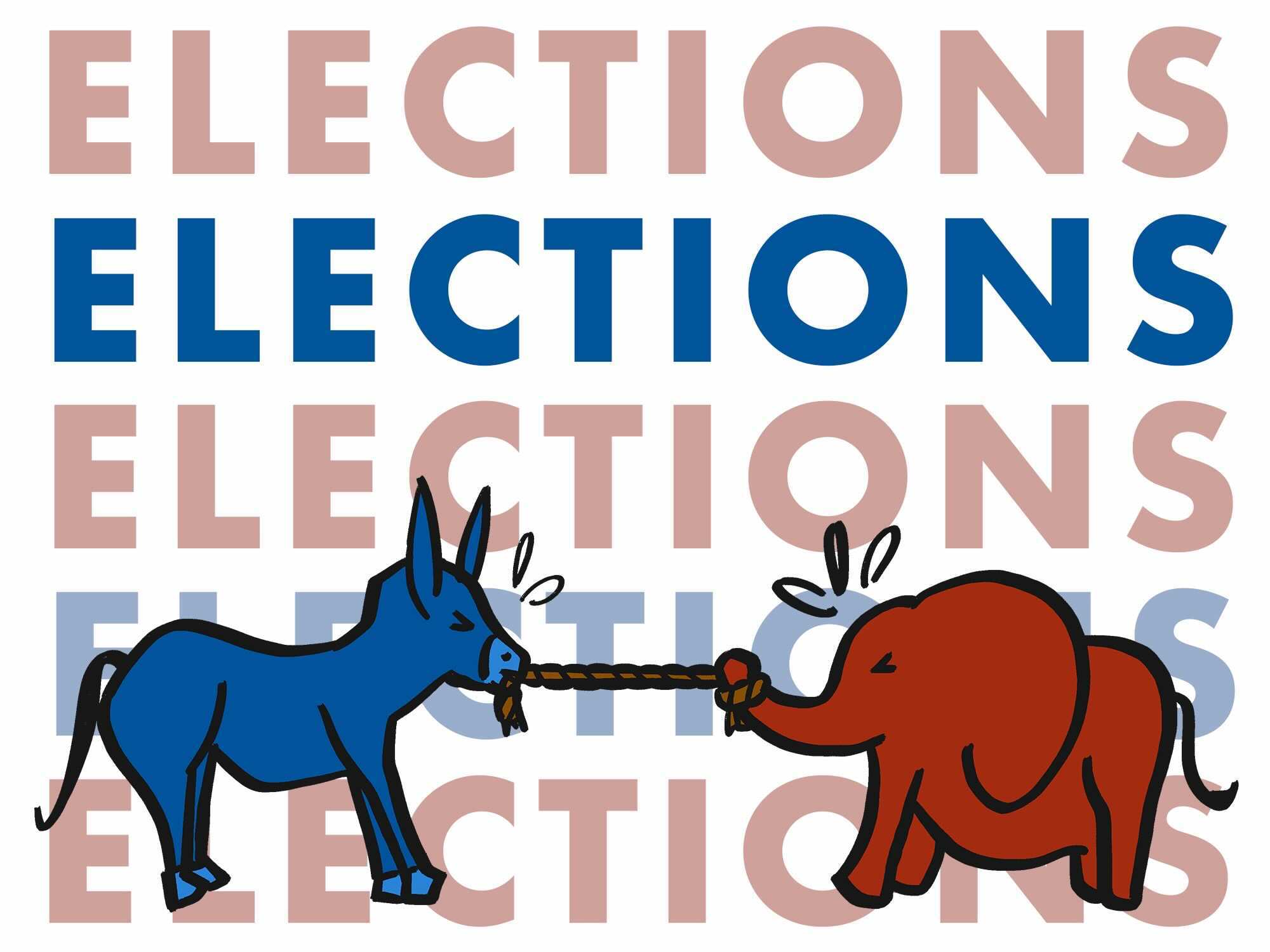Stanford political science professors predict a narrow Republican victory in the House of Representatives and an uncertain future of the Senate in the Nov. 8 midterm elections. This would lead to a divided government and Republican obstruction of the president’s policy initiatives, the 5 professors interviewed said.
Among the professors interviewed are Morris Fiorina, who specializes in American politics and elections; Terry Moe, who specializes in American political institutions; Adam Bonica, campaign and elections expert; Kenneth Schultz M.A. ’93 Ph.D. ’96, foreign policy expert and James Fearon, international relations specialist.
All 435 seats in the House of Representatives and 35 of the 100 seats in the Senate are contested in the elections. Nationwide polling predicted a preference for Republican congressional candidates.
“There’s a strong thermostatic tendency for the party that controls the presidency to lose seats at the midterm elections,” said Schultz.
While professors expected Republicans would secure a majority in the House, political science professors diverged on Senate election outcomes.
Moe anticipated a Republican victory in the Senate, but Fiorina disagreed: “Democrats are favored to hold most of their vulnerable seats” by winning Pennsylvania and Nevada, he wrote in a statement to The Daily. Democratic candidate John Fetterman holds a small lead in Pennsylvania, while Republican candidate Adam Laxalt leads in Nevada.
It is likely that any majority will be close, Fiorina said: “If the election results in anything other than a tie or 51-49 majority for either party, it will qualify as a surprise.”
Bonica called the race “an unusually close election,” with polling failing to reflect usual large swings in favor of the party not in the White House.
Bonica also called the election “crucial” for the future of American democracy. “Democrats had worked very hard to pass comprehensive election reform and expand access to vote,” Bonica said, referring to the For the People Act that passed the House but stalled in the Senate. “If Republicans have a big enough majority, many of the gains that we saw under the current Congress could be rolled back.”
Bonica pointed out that a Republican-controlled Congress could subvert the 2024 elections and embolden red states to engage in voter intimidation and party restrictions.
Experts attributed their prediction of Republican victory to a cooling down of nation-wide anger at the landmark Dobbs v. Jackson decision, where the Supreme Court ruled that the Constitution did not protect the right to abortion.
“A few months ago Democrats hoped that a negative reaction to the Dobbs decision might save enough seats to preserve their majority,” Fiorina wrote. “The polling results now are tending back toward where they were before the Dobbs decision. A 20-30 seat loss of House seats is likely.”
Experts said inflation is the most decisive issue affecting how voters cast their ballots. Schultz said voters are especially sensitive to economic downturns as they directly experience them.
Schultz’s prediction of the salience of inflation was echoed by Moe and Bonica. The latter characterized the state of the economy as “confusing,” as inflation is accompanied by low unemployment and improved wages.
However, the even split of public support for both parties suggested abortion could prove to be decisive for voters, Bonica said. He referenced high turnout in Kansas’ special elections, which occurred shortly after the Dobbs decision, as evidence.
A Republican-controlled House could likely complicate Biden’s policy initiatives. Moe hypothesized that Biden would not pass any legislation through Congress in the two remaining years of his term.
Fiorina said a divided government does not guarantee a stalemate but the House could “launch numerous investigations with the intent of weakening the Democrats heading into the 2024 presidential campaign.” Schultz said a Republican House would hold hearings over Biden’s decision to withdraw troops from Afghanistan.
A Republican majority could also influence U.S. foreign policy in Ukraine, said Schultz and Fearon, with potentially decreased funding for Ukraine.
Decreased aid “could increase Putin and his regime’s expectation that they will be in a better military position if they wait long enough,” Fearon said.
Schultz said aid to Ukraine was a divisive issue in the Republican Party as well.
Moe, who predicted a Republican majority in the Senate, warned against ripple effects in the court system. “Mitch McConnell is all about putting a strong conservative imprint on the court system right now,” Moe wrote. “It wouldn’t surprise me if they just shut Biden’s judicial nominations down and worry about the Democrats’ potential payback later.”
Bonica said a turnout of young voters will prove crucial to Democrats’ fate in the elections. A Thursday poll by the Harvard Kennedy School said an unprecedented 40% of young voters responded that they will “definitely” vote.
